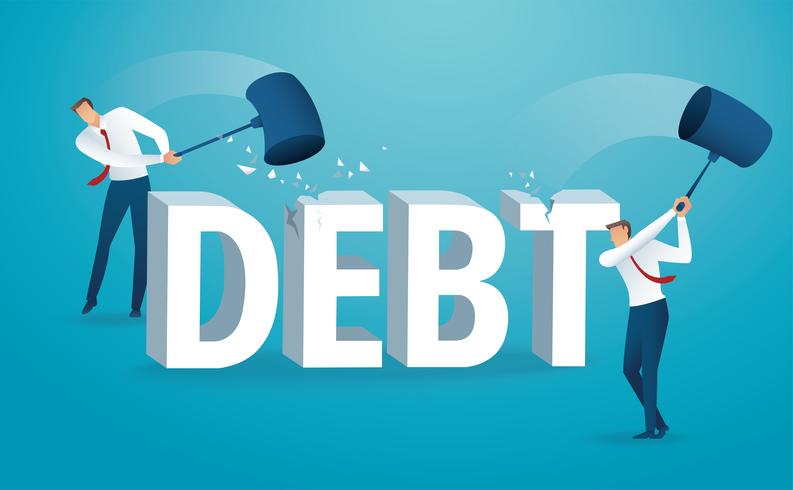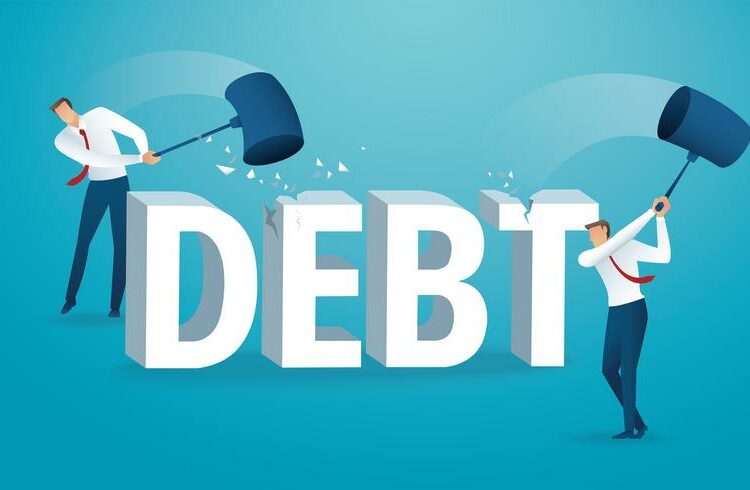Accessing funds for home repairs, educational expenses, or other financial needs can be challenging, especially when traditional loans may not be a viable option. Fortunately, as a veteran, you have the opportunity to leverage the equity in your home through a VA home equity loan. This guide will help you understand the ins and outs of VA cash-out refinances, alternative options, and key considerations to make informed financial decisions.
Toc
Introduction to VA Home Equity Loans

A VA home equity loan, also known as a cash-out refinance, is a type of mortgage that allows veterans to access the equity in their homes for various financial needs. This can be particularly beneficial for those who may not qualify for traditional loans due to credit history or income limitations.
How Does a VA Home Equity Loan Work?
A VA home equity loan works by replacing your existing mortgage with a new one that has a higher balance. The difference between the two amounts is given to you in cash, which can then be used for various expenses such as home repairs, debt consolidation, or education costs.
One key advantage of a VA home equity loan is that it often comes with a lower interest rate compared to other types of loans, making it a more affordable option for veterans.
Understanding VA Home Equity Loans
When discussing VA home equity loans, it is vital to differentiate between first-lien and second-lien loans. VA loans are classified as first-lien loans, meaning they come with a guarantee from the VA for the primary mortgage. However, the VA does not provide or guarantee traditional home equity loans, which are considered second-lien loans. This distinction is essential for veterans seeking to leverage their home equity.
Understanding these loan types is crucial before applying for a veteran home equity loan. While the VA doesn’t directly offer home equity loans, veterans can still access their home equity through alternative methods, which we will explore further.
Understanding the VA Loan Guarantee
The VA loan guarantee is a significant benefit for veterans, providing them with access to favorable loan terms and conditions. This guarantee enables veterans to secure loans without requiring a down payment or private mortgage insurance (PMI), making homeownership more accessible. However, it is essential to understand the limits of this guarantee when considering a VA home equity loan.
VA Cash-Out Refinance: Your Primary Option

The VA cash-out refinance provides a powerful tool for veterans seeking to leverage the equity in their homes. This process enables you to replace your current VA mortgage with a larger loan, allowing you to receive the difference in cash.
How It Works
For instance, if your home is appraised at $400,000 and you have a $250,000 outstanding VA loan, a VA cash-out refinance allows you to take out a new loan for up to $400,000. You would use $250,000 to pay off your existing mortgage and pocket the remaining $150,000 in cash.
1. https://docluat.vn/archive/3864/
2. https://docluat.vn/archive/3863/
3. https://docluat.vn/archive/3861/
Understanding VA Cash-Out Refinance Eligibility
To be eligible for a VA cash-out refinance, you must meet certain criteria. These include:
- Current VA Loan: You must have an existing VA-backed mortgage on your primary residence.
- Good Credit History: Lenders typically require a minimum credit score of 620-640 for VA loans.
- Sufficient Equity: You must have enough equity in your home to cover the new loan amount, including the existing mortgage balance and any closing costs.
- Home Appraisal: Your home must be appraised to determine its current market value, which will be used to calculate the maximum loan amount you can receive.
Advantages of VA Cash-Out Refinance
- No Private Mortgage Insurance (PMI): With a VA cash-out refinance, you won’t need to pay for PMI, saving you significant money each month.
- Potential for Higher Loan-to-Value (LTV) Ratio: The VA permits borrowing up to 100% of your home’s appraised value, though individual lenders may impose their own limits.
- Competitive Interest Rates: VA cash-out refinances often come with lower interest rates compared to other home equity loan options, making them more affordable.
- Flexibility in Fund Usage: The cash from a VA cash-out refinance can unlock a world of possibilities, from enhancing your home to achieving your educational goals or consolidating debt.
Disadvantages of VA Cash-Out Refinance
- VA Funding Fee: This fee is associated with VA loans and can be rolled into the loan amount, increasing your overall borrowing costs. The VA funding fee for cash-out refinances is currently [Insert current fee percentage] of the loan amount.
- Higher Closing Costs: Compared to standard refinancing, a VA cash-out refinance may incur higher closing costs. The average closing costs for a VA cash-out refinance can range from [Insert average percentage range] of the loan amount.
- Risk of Foreclosure: As your home secures the loan, failure to make payments can lead to foreclosure.
- Potential for Higher Interest Rates: Depending on market conditions and your credit score, you might face a higher interest rate on your VA cash-out refinance.
Alternative Home Equity Loan Options for Veterans

While the VA doesn’t offer traditional home equity loans, veterans have alternative options through other lenders. Let’s take a look at some military-friendly lenders that can help you access your home’s equity.
While PenFed and NFCU are prominent options, other military-friendly lenders exist. These institutions often offer competitive rates and terms specifically tailored for veterans and active-duty military personnel. Researching and comparing offerings from multiple lenders is crucial to finding the best fit for your needs.
Pentagon Federal Credit Union (PenFed): Serving over 2 million members, including military personnel and veterans, PenFed offers home equity loans with competitive rates, flexible terms, and substantial loan limits that can reach up to $400,000.
Navy Federal Credit Union (NFCU): Founded in 1933, NFCU provides financial services to military members, veterans, and their families. Although NFCU has temporarily halted new home equity loan applications due to market conditions, they are known for their competitive rates and terms tailored for military members.
Both PenFed and NFCU have established reputations for delivering excellent service and financial products geared towards the military community.
Home Equity Lines of Credit (HELOCs)
Another option for veterans is a Home Equity Line of Credit (HELOC). This functions as a revolving line of credit, enabling you to borrow against your home’s value as needed, rather than receiving a lump sum.
For example, if you have $100,000 in home equity and qualify for a $90,000 HELOC, you can draw $30,000 for a home repair and only pay interest on that amount. Once repaid, the full credit line is available again.
While HELOCs offer flexibility, it’s crucial to consider the potential for variable interest rates and the risk of accumulating debt during the draw period.
Finding the Right Home Equity Loan for Your Needs

When exploring home equity loan options, it’s vital to compare rates and terms from multiple lenders, including both military-friendly and civilian options. Here are key factors to consider when selecting a lender:
1. https://docluat.vn/archive/3856/
2. https://docluat.vn/archive/3863/
3. https://docluat.vn/archive/3861/
Interest Rates
Interest rates can significantly impact the overall cost of your loan, so it’s essential to find a lender offering competitive rates that align with your financial situation. Rates can vary based on the loan type, your credit score, and prevailing market conditions. Taking the time to shop around and analyze different lenders’ offerings will ensure you secure the best rate possible. A slightly lower interest rate can save you a considerable amount over the life of the loan, reducing your monthly payments and enhancing your financial well-being. It’s beneficial to look for any special rate reductions available to veterans, as some lenders may provide these incentives due to your military service.
Loan Terms and Conditions
Apart from interest rates, scrutinizing loan terms and conditions is crucial to ensure you fully understand the commitment you’re making. Look for details on the loan duration, repayment terms, and any penalties for early repayment. Some lenders offer flexible terms that might better suit your financial objectives, while others may have stricter conditions. Understanding the fine print of the loan agreement can prevent surprises down the road, such as unexpected fees or unfavorable terms that could impact your financial stability. Vetting these aspects before committing can contribute significantly towards a stress-free borrowing experience.
Loan Fees and Closing Costs
Fees and closing costs can add up quickly, affecting the overall expense of your home equity loan. When evaluating different loan options, pay attention to the associated costs such as application fees, appraisal fees, and closing costs. Some lenders might offer loans with no or reduced fees, which can result in substantial savings. It’s essential to factor these costs into your decision-making process to avoid any unplanned financial burdens. Negotiating with lenders may also yield reduced fee alternatives that could make one option more attractive than another.
Customer Service and Support
Customer service plays a pivotal role in your overall experience with a lender. Prioritize lenders known for their responsive and helpful support teams, as effective communication can provide reassurance and assist you in navigating any unforeseen challenges. Whether it’s needing clarity on your loan terms, assistance with the application process, or support throughout your loan term, a lender’s customer service can make a significant difference. Reading reviews and seeking recommendations from other veterans can offer insights into the quality of service you can expect.
Applying for a Home Equity Loan

Once you’ve chosen a lender, here’s what to expect during the application process for a veteran home equity loan:
Preparing Documents
Gather the following essential documents to ensure a smooth application process:
- Proof of Military Service: This includes your Certificate of Eligibility, which demonstrates your eligibility for certain benefits and programs available to military personnel.
- Income Statements: Compile recent pay stubs, tax returns, and any additional income documentation. This information is vital for lenders to assess your financial stability and repayment ability.
- Current Credit Reports: Obtain your credit reports to give a comprehensive overview of your financial status. This will help you understand your credit score and any potential areas that may require improvement.
- Mortgage and Property Tax Documents: These documents are necessary for assessing your current financial situation, including any existing mortgage obligations and property taxes owed, which can impact your borrowing capacity.
Finding a Lender
Begin your search by looking into military-friendly lenders such as PenFed and NFCU, which specialize in catering to the needs of service members and veterans. Additionally, consider local credit unions and regional banks that may offer competitive rates and personalized service. It’s important to compare their offerings, interest rates, and customer feedback to ensure you find the best fit for your specific financial needs and goals. Don’t hesitate to reach out to potential lenders with questions to clarify their loan products and requirements.
Application Steps
- Complete the Application: You have the option to apply online or in person, depending on your preference. Be prepared to provide any additional documents the lender may request, as promptness in submitting these can expedite the review process.
- Review the Loan Estimate: Once you submit your application, the lender will provide a loan estimate. Carefully examine this document, paying close attention to the interest rates, loan terms, and any fees associated with the loan. This step is crucial to ensure that you fully understand the financial implications.
- Loan Approval and Closing: If your application is approved, you will receive a detailed loan estimate outlining the terms and closing costs. Take your time to review this information thoroughly. After you’re satisfied with the terms, you can proceed to the closing process. This involves signing the necessary paperwork, and once the loan closes, the funds will be disbursed to you, enabling you to move forward with your plans.
Conclusion
After securing your home equity loan as a veteran, it’s essential to manage the funds wisely to achieve the desired outcomes. Start by sticking to a well-thought-out plan that prioritizes spending or investments that enhance your financial situation, whether you’re using the funds for home improvements, debt consolidation, or other purposes. Monitoring your loan repayments is equally important, ensuring you meet each payment deadline to avoid potential fees and maintain a strong credit profile. You might consider setting up automatic payments to streamline this process and alleviate stress. Additionally, keep an eye on your overall financial health by regularly reviewing your budget and making adjustments as needed. This proactive approach can help you maximize the benefits of your loan, stay financially organized, and encourage long-term stability. Lastly, remain in communication with your lender for any further assistance or support, ensuring a positive lending experience as you navigate your financial future.





